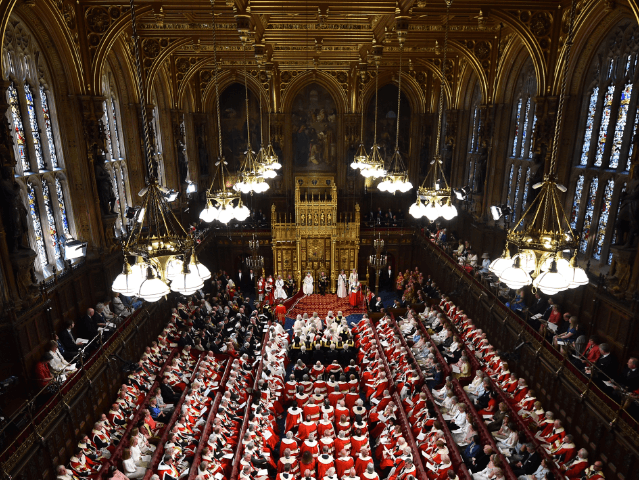Attempts to overturn Brexit would pitch the country into the largest constitutional crisis it has faced in over a century, Brexit-supporting peers have warned their colleagues.
Addressing the House of Lords yesterday, former Foreign Secretary Lord Hague made an impassioned case for voting through the European Union (Notification of Withdrawal) Bill unaltered to allow the government to get on with the job of taking Britain out of the EU, as is the will of the British people.
“I voted to remain in the European Union but I support the Bill, because the referendum was decisive,” he said. “Attempts to refight that referendum, which have begun a little in the last few days, are a great error.”
Slamming the former Prime Minister Tony Blair for calling on people to “rise up” against Brexit, he said that calls to do so were not only undemocratic but could pitch Britain headlong into decades of turmoil.
“If there was a real chance of rising up successfully against leaving the European Union, it would open up the most protracted, bitter and potentially endless conflict in British society and politics that we have seen since the decades of debate on Irish home rule, and possibly even longer than that,” he said.
“If there is no or little prospect of that succeeding, to ask people to rise up against it serves only to strengthen the hand of some in the EU who believe that if they make the negotiations difficult enough, we will somehow lose heart, which does not help a successful, negotiated outcome.”
Hague’s oratory came in the midst of a two day long marathon debate on the Bill, which hands the Prime Minister, Theresa May, the ability to spark Brexit by invoking Article 50 of the Lisbon treaty, and which yesterday produced the unusual sight of Mrs May sitting on the steps of the throne to hear the opening arguments.
Arriving in the House of Lords’ Chamber just before 3pm, Mrs May was allowed to sit before the throne as she is a member of the Privy Council. However, the last time a Prime Minister did so was when David Cameron listened to tributes to the late Margaret Thatcher just after her death; to attend a debate on government legislation is almost unheard of.
Nonetheless, the arguments fell out much along party lines.
The Lord Privy Seal, the Baroness Evans of Bowes Park opened the debate by appealing to her colleagues to be mindful of the support granted the Bill, unamended, in the House of Commons, where it was passed with a majority of 372.
“The Bill is the legal means by which to give the Prime Minister power to commence withdrawal negotiations, and nothing more,” she said.
“The Bill is not the place to try to shape the terms of our exit, restrict the Government’s hand before they enter into complex negotiations, or attempt to rerun the referendum. The Bill is the beginning of a process and a discussion we will be having in this House and the other place for years to come.”
The former Conservative Chancellor, Lord Lawson of Blaby, was in agreement, warning against “improper” amendment of the Bill.
“In the unprecedented circumstances in which we find ourselves, I have to say that were the House to entertain any of the amendments it would have embarked on an ill-advised, improper and fundamentally unconstitutional manoeuvre,” he insisted, to cries of “shame” from the opposition.
Labour peers such as Baroness Smith of Basildon sought to strike a conciliatory note, promising: “We will not block, wreck or sabotage the legislation before us. Whatever our personal views, disappointments and genuine concerns for the future, that is not the role of this House.”
However, she went on: “as I have also said, neither should we provide the Government with a blank cheque. It would be irresponsible to merrily wave the Government off to negotiate our future without parliamentary engagement or accountability, and merely ask them to return two years later with a deal.”
The Liberal Democrats, meanwhile, stuck almost unanimously to the party line to call for a second referendum once the two year negotiations on the shape of Brexit have been finalised.
But Lord Hague warned against re-running the Brexit debate, saying: “A country cannot go round in circles. Opinion will vary over the next few years.
“But we cannot leave the EU in 2017, remain in it in 2018, and leave it again in 2019; by 2020 we will be too confused to know what we are doing.”

COMMENTS
Please let us know if you're having issues with commenting.